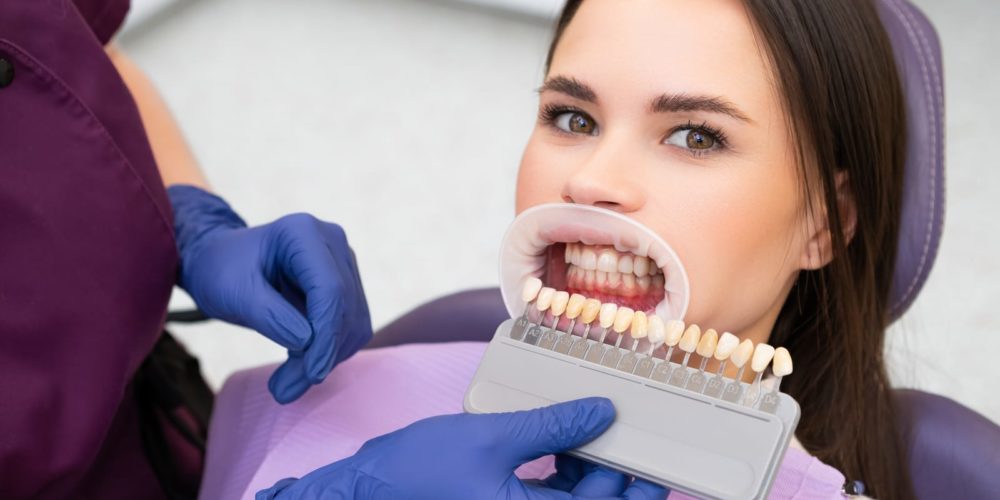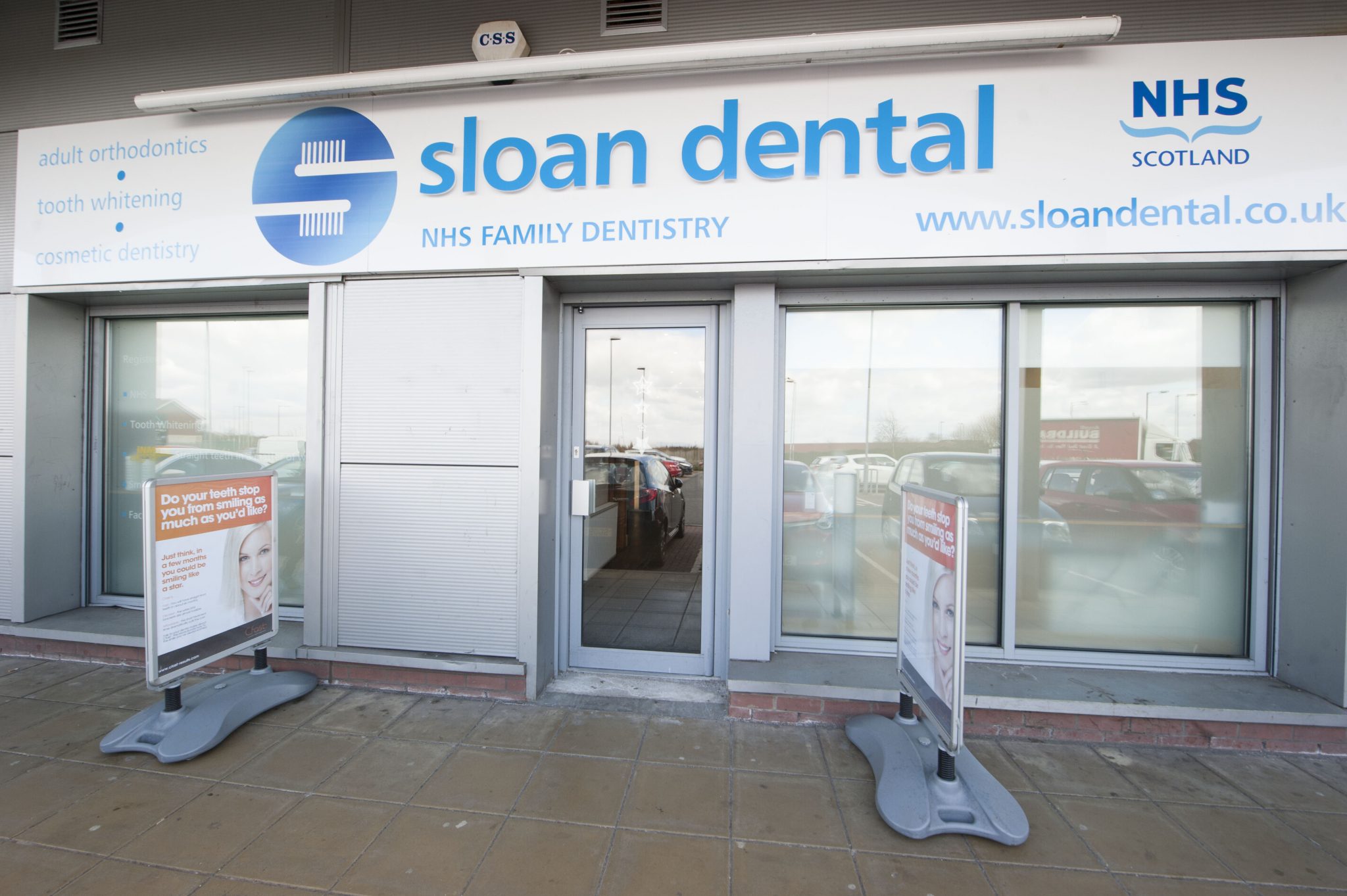When it comes to dental treatments, one of the first things on everyone’s mind is, “Will it hurt?” If you’re considering composite bonding, this question has likely crossed your mind, too.
Composite bonding can work wonders for your smile, but wondering about discomfort is only natural.
In this post, we’ll walk you through what to expect during the procedure – step by step. You’ll find out whether there’s any pain involved, how long the process takes, and what it actually feels like.
So, does composite bonding hurt? Keep reading to find out!
A Quick Overview of What Composite Bonding Is
Before we go into the details of what to expect with composite bonding, let’s first take a moment to help you understand all you need to know about composite bonding.
If you’re looking to fix minor imperfections in your smile, such as chips, gaps, or discolourations, composite bonding might just be what you need.
It is a cosmetic dental treatment that uses a tooth-colored resin material to fix minor imperfections in smiles. It’s a straightforward process where your dentist shapes and polishes the resin to blend perfectly with your natural teeth, giving you a seamless smile.
One of the best parts? Tooth bonding is quick, often completed in a single visit, and requires minimal tooth preparation.
Plus, it’s an affordable option that can significantly enhance your smile without the need for more invasive treatments like crowns or veneers.
Does Composite Bonding Hurt?
One of the most common questions we often receive about composite bonding is, “Will it hurt?” The good news is that composite bonding is generally a pain-free treatment.
Since there’s minimal tooth preparation involved, most patients don’t need any anaesthesia.
The process focuses on adding a thin layer of resin to the tooth’s surface, which is then shaped and hardened without affecting the inner tooth structure.
You might feel some gentle pressure as the dentist works, but nothing uncomfortable. So, know that bonding is a comfortable, low-stress procedure that leaves you with a bright, polished smile.

What to Expect During the Procedure
At Sloan Dental, we aim to make your composite bonding experience as smooth and comfortable as possible. Here’s what you can expect when you come in for the procedure.
Consultation and Planning
We start by discussing your smile goals in a relaxed consultation. This is your chance to share any concerns and let us know exactly what you’d like to achieve. We’ll assess your teeth and ensure composite bonding is the right solution for you.
Preparation of the Tooth Surface
Before applying the composite material, we’ll gently clean the surface of your teeth to ensure a strong bond. No drilling or enamel removal is needed, so you can rest easy – this step is entirely comfortable and non-invasive.
Application of the Composite Resin
Next, we carefully apply a tooth-coloured resin to your teeth. This resin is added in layers, which allows us to shape and build it gradually, ensuring a perfect blend with your natural teeth. You may feel a slight pressure as we mould the resin, but no discomfort.
Curing the Resin
Once the resin is in place, we use a special curing light to harden it. This process takes just seconds per layer and is completely painless. The light activates the resin, giving it strength and durability.
Shaping and Polishing
Finally, we shape and polish the bonded area to achieve a natural, smooth finish. This last step ensures the bonded teeth look as shiny and seamless as your own. You’ll walk out with a refreshed, polished smile, all in under an hour for most cases!
Post-Procedure Tips to Manage Pain After Bonding
While composite bonding is usually pain-free, it’s natural to feel a bit of sensitivity afterward, especially to hot or cold foods.
Here are a few tips that can help you stay comfortable post-procedure.
Avoid Extremely Hot or Cold Foods
For the first few days, try to steer clear of very hot or cold foods and drinks, as these can trigger temporary sensitivity in the bonded teeth.
Skip Hard or Sticky Foods
Hard foods like ice or sticky treats like toffees can put unnecessary pressure on your bonded teeth. Give it about a week to settle before indulging in these treats.
Over-the-Counter Pain Relief (if needed)
If you experience any lingering discomfort, a mild pain reliever can help. However, most patients find they don’t need it as the sensitivity usually fades within a few days.
Stay Consistent with Oral Hygiene
Keep up with your daily brushing and flossing routine, as it helps maintain the health of both your natural teeth and the composite bonding.

How to Manage Teeth Sensitivity After Composite Bonding
After composite bonding treatment, it’s common to experience a bit of sensitivity to hot, cold, or sweet foods, but don’t worry – this usually fades within a few days.
To manage any sensitivity, try using a toothpaste designed for sensitive teeth, as it can help reduce discomfort with regular use.
Avoid extremely hot or cold foods initially, and brush with a soft-bristled toothbrush to keep from aggravating sensitive areas.
If the sensitivity lingers, consider rinsing with a fluoride mouthwash, which can help strengthen the enamel around the bonded area.
Keeping up with these simple steps can make a big difference in managing sensitivity and keeping your smile comfortable!
How Long Does Discomfort Last?
Discomfort after tooth bonding is generally mild and short-lived. Most patients experience only a brief period of sensitivity, which usually lasts a few days to about a week.
During this time, you might notice heightened sensitivity to hot or cold foods and drinks, but it should gradually decrease as your teeth adjust.
If you’ve followed post-procedure care tips and still notice sensitivity beyond a week, it’s a good idea to check in with your dentist.
When to Contact Your Dentist
While discomfort after the treatment is usually minor and temporary, there are times when it’s best to reach out to your dentist.
If sensitivity lasts longer than expected or you notice any unusual symptoms, it’s a good idea to have it checked out.
Here are situations when contacting your dentist is necessary:
- Persistent sensitivity or discomfort lasting beyond one week.
- Sharp or throbbing pain in the bonded tooth or surrounding area.
- Noticeable cracks, chips, or damage to the bonding material.
- Signs of gum irritation, redness, or swelling around the bonded tooth.
- Any issues with your bite or discomfort while chewing.
You Can Achieve Your Dream Smile with Composite Bonding in Glasgow
What is it you are looking to achieve; fix small imperfections, close gaps, or brighten your smile?We’re here to help you reach your goals with composite bonding.
Using high-quality materials and advanced techniques, we ensure your results look natural and beautiful.
Ready to enhance your smile? Get in touch with us today to schedule your consultation and start your journey to a brighter, more confident you!
So, does composite bonding hurt? Now you know!
FAQs
How long does composite bonding last?
Composite bonding is a durable solution, typically lasting anywhere from 5 to 10 years with proper care. We often recommend regular check-ups to ensure the bonding remains in top condition. Avoiding habits like biting nails or chewing on hard objects can also help extend its lifespan.
What is the cost of composite bonding in Glasgow?
This can vary depending on the number of teeth being treated and the complexity of the work. At Sloan Dental, we offer tailored treatment plans, and during your consultation, we’ll provide a clear breakdown of costs to ensure you have a complete picture.
Who is not a suitable candidate for composite bonding?
While composite bonding works well for many people, it’s not always ideal for those with severe tooth decay, major alignment issues, or habits like teeth grinding, as these can affect bonding durability.
Can teeth bonding fix gapped teeth?
Yes, dental bonding is an excellent option for closing small gaps between teeth. By applying a carefully sculpted resin to the edges of your teeth, we can close gaps and give your smile a more even, natural appearance. It’s a straightforward solution we’re proud to offer at our Glasgow office!



